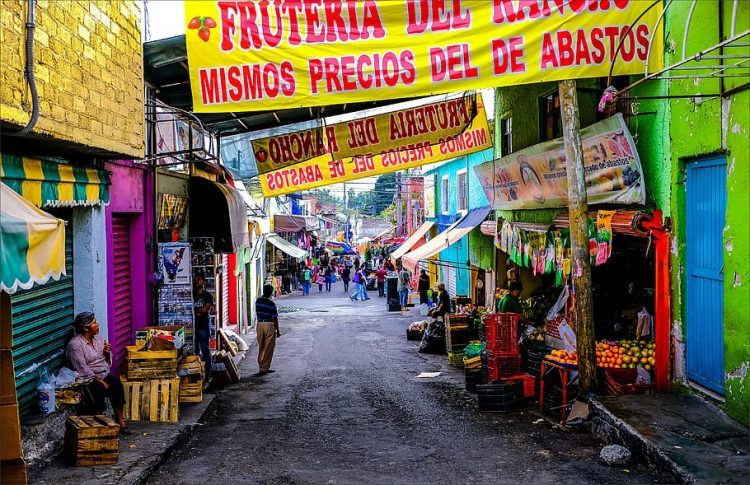The virtual meeting “Supply markets in the face of Covid-19 – towards a gradual and selective exit from lockdown. Health and safety measures at work and the role of social dialogue” was held on 4 August.

This webinar concludes the series of online meetings held by the International Labor Organization (ILO), Argentina’s Ministry of Labour, Employment and Social Security and the Occupational Risk Superintendency, together with the Programme of the European Union EUROsociAL+, on how countries prepare for the gradual and selective exit from lockdown in different sectors.
On this occasion, the discussion focused on supply markets, an activity considered essential by most governments, as its continuous operation guarantees the provision of food. However, in some countries, these spaces have also led to outbreaks of Covid-19 infection.
With this context as a backdrop, representatives of governments, workers and employers from Argentina, Chile, Mexico and Barcelona in Spain shared and reflected on the measures adopted, the challenges and lessons learnt to be taken account of in the context of the crisis generated by the pandemic. The discussion highlighted the need to preserve jobs and income, ensuring health and safety conditions for this group of workers who are essential in caring for the population.
The meeting was moderated by Pablo María Sorondo (ILO Argentina) and began with an exchange with Nahuel Levaggi, chairman of the Central Market of Buenos Aires, who recognised the central role of markets in food supply and highlighted: “The pandemic affected our capacity for action, but it did not stop it. We have been putting into practice proposals, protocols and necessary steps for the protection and health of workers.” Levaggi also underlined the importance of three-way discussions in order to build precautionary and preventive measures against Covid-19 and to share experiences.
Froilán Flores, chairman of Chile’s National Confederated Union of Free Fair Organisations (ASOF C.G.), outlined how outdoor markets work in the country, highlighting the fact that they are its main supply channel, present in 95% of neighbourhoods, both in the most privileged and most vulnerable areas. Flores said that “thanks to the training work and the application of protocols that take care of workers’ health and safety with regard to the virus, they were able to avoid being the greatest source of contagion, even when in close contact with the public.”
Genís Arnás Páez, departmental head of Markets at Barcelona’s Municipal Institute of Markets drew attention to the extensive coverage of neighbourhood markets. There are 72 neighbourhoods in the city, with one municipal market for every two of them. Arnás Páez highlighted the key role of women within these markets and their historical significance. He also spoke about incorporated control measures, highlighting the use of surveillance cameras to control capacity and guarantee physical distancing.
Raúl Giboudot, general secretary of the Latin American Federation of Supply Markets (FLAMA), said that the Federation was in permanent contact with public and private stakeholders from other countries through agreements that incorporate joint protection measures to tackle the pandemic. Such measures take into account the particularities and heterogeneities that characterise each area. He also stressed the importance of making the reality of markets transparent: “We must shine a light on the sector so that problems are visualised and thus solved”, he said, emphasising the vulnerability of workers, but also at a general level, stressing the relevance of dialogue with the authorities in order to develop improvements.
The closing remarks were given by Laure Rogès, a European Union representative from the Directorate-General for International Cooperation and Development, who underlined the importance of the topics covered in the webinar cycle and the valuable contribution made by all participants. She underlined the importance of multilateral cooperation, in particular the alliance between the European Union and Latin America. Laure Rogès also said that Covid-19 is proving to be a critical test of resilience for societies, economies and governance around the world. Resilience emerges as a new priority, an increasingly important challenge for all societies. For the European Union, with its Eurosocial programme, the option is to face this challenge in a collaborative way between countries.
Fabio Bertranou, director of the ILO Office for Latin America’s Southern Cone, highlighted the importance of alliances in the achievement of the successful exchange of experiences in the cycle of virtual seminars and the construction of a pathway for transiting through this crisis, which not only has an impact on health concerns, but also the world of work. “The pandemic gives us the opportunity to rethink the future of work, a future with more social dialogue, stronger labour institutions and better working conditions for everyone”, he said.



